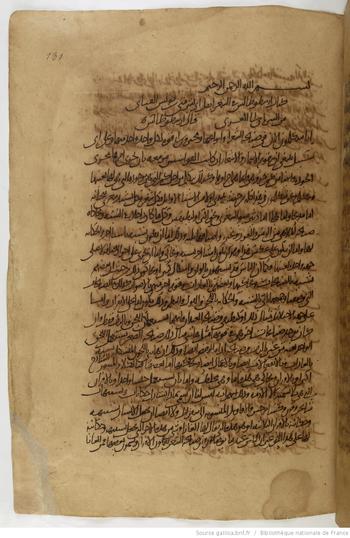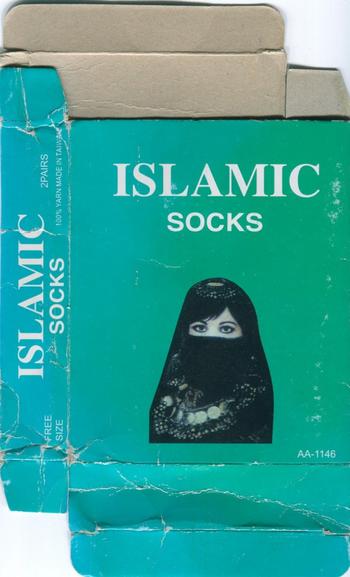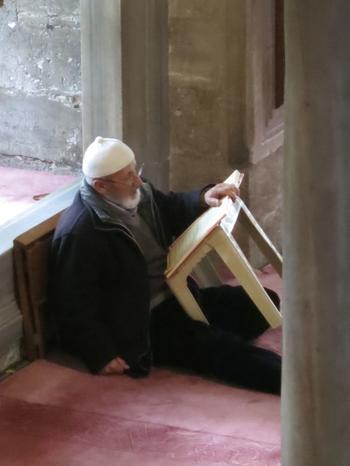About Us
The Graduate School is a joint project by Freie Universität Berlin, Humboldt-Universität zu Berlin, and the Leibniz-Zentrum Moderner Orient (ZMO). As a part of Freie Universität Berlin’s Department of History and Cultural Studies, our offices are situated on Freie Universität Berlin’s campus in Berlin Dahlem.
Texts
Image Credit: gallica.fr / Bibliothèque nationale de France
Objects
Image Credit: Alina Kokoschka
Practices
Image Credit: Ulrike Freitag
Our research fellows investigate the plurality, changeability, and global connectedness of Muslim cultures and societies past and present. In a comparative way, they examine concepts, practices, and institutions variously understood as Islamic.
Geographically, the Graduate School covers a broad spectrum: in addition to the Middle East, our research focuses on sub-Saharan Africa; Central, South, and Southeast Asia; and the Muslim diaspora in Europe and North America.
The Graduate School systematically connects cultural, historical, and social-scientific approaches to research. This is reflected in the multidisciplinary composition of researchers and research projects. We offer supervision of doctoral projects in the following disciplines:
- Arabic Studies,
- Asian and African Studies,
- Central Asian Studies,
- History,
- Human Geography,
- Islamic Studies,
- Iranian Studies,
- Political Science,
- Semitic Studies,
- Social and Cultural Anthropology,
- South and Southeast Asian Studies,
- Southeast European History.
Research projects at our Graduate School address in particular strategies of dealing with diversity, difference, and distinction in a wide range of fields, be they religious, cultural, ethnic, social, economic, or political. They do this through one or more of the three focal areas of texts, objects, and practices.
Texts
Texts form an important nexus through which diversity is negotiated within Muslim communities and societies. This negotiation occurs at all stages of textual production as well as during the reception and re-use of textual material. We understand the concept of text in a broad way: orally transmitted, written, or alternating between both modes.
Objects
Objects can be used as key points of entry into understanding the ways in which Muslim communities deal with diversity and difference. This includes analysing material culture with reference to its discursive function as well as investigating the role of objects in social interactions.
Practices
Our research in this area explores broader questions of power relations and the way these might affect various actors’ approaches to dealing with diversity. Possible research topics include perceptions of difference, individual strategies of dealing with diversity, and practices of enacting difference and hybridity.
We support our doctoral candidates with a research-oriented curriculum. Our courses are designed to balance specialised research in a given field of study with multidisciplinary training. Our three-year modular programme offers supportive structures and provides sufficient time for field or archival research and writing. Berlin boasts excellent libraries and manuscript collections as well as two museums that house important collections relevant to our area of study. This setting offers a particularly inspiring environment for researchers focusing on Muslim cultures and societies.
With more than 50% of our fellows coming from abroad, we offer a diverse and international environment for your doctoral studies. Our primary language of communication is English.
Doctoral candidates are supervised by a multidisciplinary PhD committee and are enrolled at either Freie Universität Berlin or Humboldt-Universität zu Berlin, depending upon the affiliation of their primary supervisor.
Our programme offers excellent academic training and supervision, support structures for professional and personal development, and membership in a diverse and international group of doctoral researchers. Our alumni work in academia, political and cultural institutions, and civil society organisations.
We support our doctoral candidates with a research-oriented curriculum. Our courses are designed to balance specialised research in a given field of study with multidisciplinary training. Our three-year modular programme offers supportive structures and provides sufficient time for field or archival research and writing. Berlin boasts excellent libraries and manuscript collections as well as two museums that house important collections relevant to our area of study. This setting offers a particularly inspiring environment for researchers focusing on Muslim cultures and societies.
With more than 50% of our fellows coming from abroad, we offer a diverse and international environment for your doctoral studies. Our primary language of communication is English.
Doctoral candidates are supervised by a multidisciplinary PhD committee and are enrolled at either Freie Universität Berlin or Humboldt-Universität zu Berlin, depending upon the affiliation of their primary supervisor.
Our programme offers excellent academic training and supervision, support structures for professional and personal development, and membership in a diverse and international group of doctoral researchers. Our alumni work in academia, political and cultural institutions, and civil society organisations.
Since the founding of the Graduate School in 2008, we have accepted a total of 149 doctoral students. By September 2020, 65 doctoral students (43%) had submitted their dissertations, 29 doctoral students (20%) are completing our three-year structured program, and 39 doctoral students (26%) continue to work on their dissertations after the end of the three-year program. To date, 16 doctoral students (11%) have abandoned their dissertation. The average time to complete a doctorate is 4.8 years.
In total, 52% have assigned themselves to the female gender (n=78), 43% to the male gender (n=64) and 5% (n=7) as diverse. About 45% of the doctoral students have German citizenship, 55% are international doctoral students. A good quarter (27%) of the doctoral students live with children in one household.
The Berlin Graduate School Muslim Cultures and Societies was funded by the German Research Foundation from 2007 to 2019 through the Excellence Initiative of the German federal and state governments.
Since 2016, the DAAD has provided us with two doctoral scholarships a year for international doctoral students through the Graduate School Scholarship Programme.
The Einstein Foundation Berlin has awarded our structured doctoral program with the Einstein Award for Doctoral Programs "Summa Cum Laude" in 2018. Funding from the prize money runs from 2019 to 2021.
Since 2018, the Gerda Henkel Foundation has funded two doctoral scholarships for doctoral students in our programme each year.
Since 2019, the Fritz Thyssen Foundation is supporting a postdoctoral position at the Graduate School.
In 2018 and 2019, supervisors of the Graduate School won the Dahlem Research School Award for Excellent Supervision.
The Berlin Graduate School Muslim Cultures and Societies is located at Hittorfstr. 18, together with the Graduate School of East Asian Studies and the Berlin Graduate School of Ancien Studies.
The villa was built by the Jewish family of biochemist Carl Neuberg. The National Socialists forced Carl Neuberg to sell the house to the stock corporation Kali-Chemie for a fraction of its value. Between 1949 and 1950 the Freie Universität Berlin acquired the building from the Kali-Chemie company and housed the Institute of Forensic Medicine. Since 2007 the building had housed the TOPOI cluster of excellence, and by 2019 three graduate schools of the Department of History and Cultural Studies had moved in.
In West Germany Carl Neuberg received a poor compensation of 50.000 DMark. This makes it all the more important for us to remember and honor him as the builder of this house, as a renowned scholar and as a victim of National Socialism.




